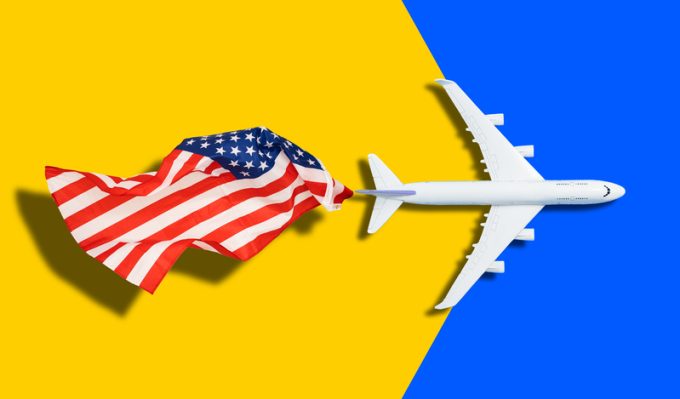© Andrew Angelov
America’s three largest airlines – Delta, United and American – expanded their cargo traffic in the second quarter, but they found increasing e-commerce activity from China to their territory .
Airlines performed well overall this quarter, with Delta and American recording revenue, and while all three saw gains in cargo ton-km (CTK), only Delta and United saw growth in cargo revenue, while American reported a slight decrease.
Delta, which saw adjusted earnings rise 5.4% year-on-year, to a record $15.4bn, showed the biggest percentage gain on the cargo side – as Ceva’s Peter Penseel arrives to run property.
Property tax rose 16%, to $199m, bringing first-half profits to $377m, down 1% from the result 12 months earlier.
United reported a 5.7% increase in operating income, to $15bn, due to a 14.4% increase in its revenue, up to $414m, in the quarter. Revenue ton-km (RTK) rose 16%, to $890m.
RTK also rose 16% for the first half of the year, to 1.7bn, while property tax reached $805m, up 6% in the first six months of 2023.
American Airlines, the last of the three to announce its results, posted a new quarterly record of $14.3bn in revenue. This was below management’s initial expectations, due to traffic imbalances and a changing sales and customer distribution strategy.
Freight revenue fell 1.3%, to $195m, despite a 21% increase in freight-miles, as yields per ton-mile fell 18%, to cents 37.87. In the first half of the year, America posted a 9% decline in merchandise revenue, to $382m.
For most of this year, North American carriers have lagged their international peers in terms of traffic growth, IATA statistics show. In May, their combined CTK growth of 8.7% was the lowest in the world. In the first five months of the year, CTKs in North America were up 6% – the only region not showing double-digit traffic growth.
Likewise, North American carriers have lagged behind in terms of capacity expansion, compared to airlines from other regions. Growth of 2.5% in May and 2% for the period January-May was lower than in other areas.
In May, nine global trade sectors registered double-digit growth in aviation demand, with Asia-North America showing the lowest gain, of 12%. Transatlantic traffic is up 8.9% and US CTK is down, from double digit growth last month to just 3.3%.
In addition, US airlines have been more or less observers when it comes to the great wave of e-commerce that has increased the number and brands of airlines worldwide. Passenger flights between the US and China remain at a low level due to an uneven playing field – Chinese carriers are unrestricted in Russian airspace.
Although several carriers are still using standard freight rates to move their traffic from China to the US, American carriers have been able to provide only a fraction of their pre-Covid capacity in this sector.
And capacity is unlikely to grow significantly in the coming months. In its outlook for the third quarter, Delta management predicted a slowdown in capacity growth.
Meanwhile, Delta Airlines has also been hit by the effects of CrowdStrike, which hit the carrier harder than its US peers. It had to cancel about 1,200 flights on each of last Friday, Saturday and Sunday.
On Monday, when United and American returned to normal operations, Delta still had to cancel more than 700 flights, and the problems continued in the following days. On Tuesday the US Department of Transportation opened an investigation into the airline’s handling of the incident.
On the cargo side, this was Delta’s second IT outage in a month: on June 26, there was a problem that shut down Delta Cargo’s automated booking system.
Delta and United increased their access to online storage this year through deals with WebCargo.
Check out this clip from today’s Loadstar Podcast on IATA’s CASS failure
#mega #airlines #grow #cargo #volumes #ecommerce #boom #Loadstar

